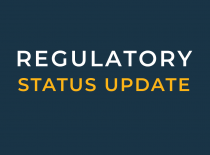Category: Newsletter
The Commonwealth has launched the next review of the Massachusetts Ocean Management Plan, an important step in guiding the responsible use of ocean waters that are vital to Cape Cod’s identity, economy, and environment. Established under the 2008 Oceans Act, the Plan was the nation’s first comprehensive, enforceable marine spatial plan, balancing uses like fishing, shipping, recreation, renewable energy, and conservation through a science-based approach. The required five-year review will assess current conditions and, if needed, develop updates to reflect new science, ocean uses, and priorities.
Launched in 2023 by the Cape Cod Commission and the Association to Preserve Cape Cod, the Regional Pond Monitoring Program monitors a representative sample of ponds to provide insight into water quality and how it is influenced by pond size, land use, and watershed characteristics. This year, the number of monitored ponds has expanded from 50 to 75. Alongside physical and chemical measurements, the program now includes enhanced monitoring of zooplankton.
Cape Cod’s Black community has long shaped the region’s cultural, social, and economic life. Enslaved Africans were brought to the region in the 17th century, and in time, freed individuals established vibrant communities. Throughout the 19th and 20th centuries, Black residents contributed to maritime industries and civic life while facing systemic racism and segregation.
Moving a transportation project from concept to completion takes time and teamwork. The Cape Cod Commission guides these efforts, with a staff of transportation planners supporting two regional organizations: the Metropolitan Planning Organization (MPO) and the Joint Transportation Committee (JTC). These bodies help set priorities and ensure that state and federal funds support the right local improvements.
A status on projects currently under review by the Cape Cod Commission.
In 2022, the Cape Cod Commission debuted the High Groundwater Levels Data Viewer, providing a more accessible, up-to-date way to estimate seasonal high groundwater levels anywhere on Cape Cod. Recently refreshed with visual and usability updates, the Viewer continues to serve as an essential resource for engineers, surveyors, septic professionals, and local officials.
Each year, the Cape Cod Commission receives funding through the Massachusetts Executive Office of Housing and Living Communities to provide technical assistance to towns in our region. The District Local Technical Assistance (DLTA) program helps municipalities with sustainable development and encourages partnerships to achieve planning and development goals that align with state and regional priorities.
Over the years, DLTA funds have supported housing and wastewater initiatives, studies of redevelopment options and economic development strategies, and targeted local planning and zoning efforts. Seven projects received 2026 DLTA funds.
The Cape Cod Commission has been awarded $476,800 in federal funding through the U.S. Department of Transportation’s Fiscal Year 2025 Safe Streets and Roads for All (SS4A) grant program to advance roadway safety across Barnstable County.
The grant will support Planning and Demonstration Activities that build on the recently completed Cape Cod Vision Zero Action Plan, with a focus on reducing fatal and serious injury crashes and making Cape Cod’s roadways safer for everyone, including drivers, pedestrians, bicyclists, and transit users.
On Cape Cod, the cost of purchasing or renting a home far exceeds what typical year-round households can afford. Working with Outwith Studio, the Cape Cod Commission has completed an analysis examining incentive-based strategies that communities can use to increase the supply of year-round housing, an issue that continues to affect the region’s workforce, families, and long-term residents.
A status on projects currently under review by the Cape Cod Commission.










